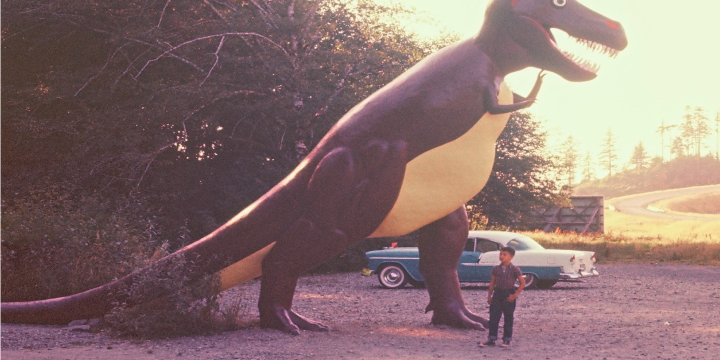Frequently Asked Questions
Humans are curious creatures, so they have questions.
Who writes entries for The OE?
The Oregon Encyclopedia does not accept unsolicited entries. The encyclopedia is an authoritative publication, which means we adhere to a scholarly editorial process.
Authors are vetted by the editors and invited to submit entries. If you are interested in writing for The OE, contact [email protected] to propose an entry. Include your qualifications for writing that entry—research experience, publications, expertise on the topic, etc. The editors will review the information and invite you to write if they approve the suggestion. Please do not submit an entry by email. All authors and topics must be approved by The OE before drafts of entries will be accepted.
How do I suggest a topic?
We need help to fully document the history and culture of Oregon Country. If you think we are missing an entry, please use [email protected] to tell us about it--even if you do not wish to write the entry. The editorial staff will decide if the topic is a good fit for the encyclopedia and find the right person to write the entry.
How do I request permission to cite an article or use an image?
The Oregon Historical Society (OHS) and Portland State University (PSU) own the content on The Oregon Encyclopedia (OE). All materials, including entries and images, may not be reproduced in print or electronically without written permission from The Oregon Encyclopedia.
Teachers and educational organizations may use the content on The OE for educational purposes only. They do not need to obtain permission to use site materials for classroom exercises or teacher workshops, but they must make proper attribution to both The Oregon Encyclopedia and the authors of the entries. Web site administrators may create a direct link to pages of The OE from their Web sites without obtaining permission from The OE. Teachers and educational organizations may not reproduce Encyclopedia content in publications of any kind—paper or electronic—or on Web sites without written permission from The OE.
The images used on The Oregon Encyclopedia are reproduced by permission of various institutions and individuals who retain copyright of their materials. The Oregon Encyclopedia may not grant permission to reproduce images found on the Web site. You must contact the institution or individual owners of the images to get permission. This information may be found on each image. Information on the use and reproduction of images from the OHS collection can be found HERE.
All requests to use written material from The Oregon Encyclopedia should be sent to [email protected].
How do I cite an article?
Bibliography:
Author. "Title of entry/page." The Oregon Encyclopedia. URL. Date accessed.
Ex.: Robbins, William. "Alsea River." The Oregon Encyclopedia. https://www.oregonencyclopedia.org/articles/alsea_river/#.YC2iE89uc-Q. Accessed October 21, 2018.
Footnote and endnote:
Author, "title of entry," The Oregon Encyclopedia, url, access date.
Ex.: William Robbins, "Alsea River," The Oregon Encyclopedia, https://www.oregonencyclopedia.org/articles/alsea_river/#.YC2iE89uc-Q accessed October 21, 2018.
Can I alter an entry for use in my classroom?
The encyclopedia entries on The OE are copyrighted by the Oregon Historical Society or Portland State University. Altered entries may not be published or attributed to the Oregon Encyclopedia, the entry authors, or the Oregon Historical Society. Short excerpts from entries are allowed if they appear as quoted material and the author and The OE are identified as the source.
Altering the text, especially using AI, can introduce errors of fact and in understanding. The OHS Education staff has created curriculum materials for students of all grade levels, with recommendations for using history resources, including OE entries, in the classroom.
What is The OE editorial process?
The OE is a scholarly publication and follows a standard editorial process. All entries are subject to external review, fact checking, and copy editing. Authors have the opportunity to respond to reviewers' suggestions and to revise their entries. The editors reserve the right to revise the accepted manuscript for clarity, consistency, style, syntax, and punctuation. The OE retains copyright of the entry.
Understanding Topic Significance
An encyclopedia entry provides readers with an introduction to a topic. It is short, concise, and comprehensive. All entries should focus on providing a clear and accessible description of the subject. Authors should sequence the presentation of facts and descriptions to engage readers while taking care to avoid overly involved or esoteric explanations. The goal is to inform readers by providing information and explaining significance.
The entries and essays in The Oregon Encyclopedia aim to constitute a full picture of Oregon and include luminaries as well as previously unknown people, places, and events. The OE cannot publish autobiography, family history (unless members or events meet the criteria for significance), or promotional material (e.g., for businesses or products). Generally, authors will not write about their own families or businesses or events in which they were participants.
To establish significance, a topic must be strongly connected to the State of Oregon and meet one or more of these criteria:
- constitute a contribution to Oregon culture
- establish a basis for subsequent activities in Oregon
- represent the spirit of an Oregon community, time, or place
- represent events that were pivotal in a community's history
- represent something unique or significantly inventive or creative
- represent a national or international accomplishment or recognition



